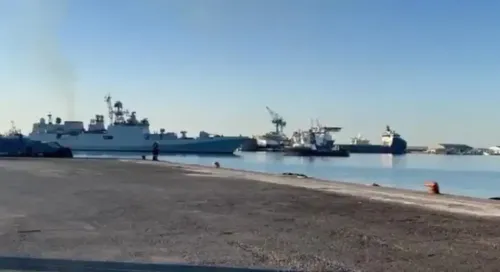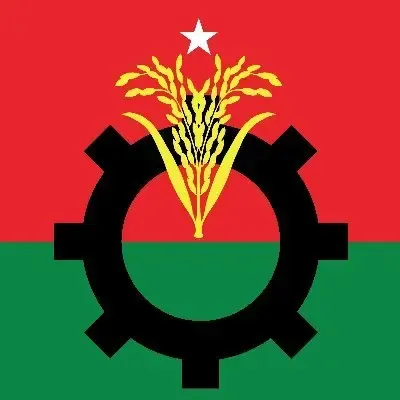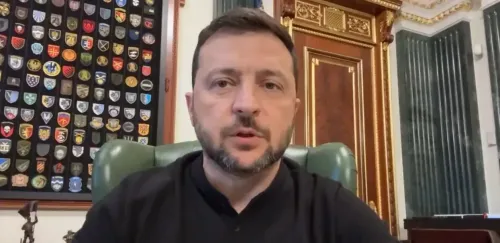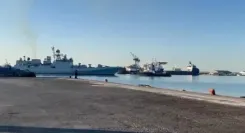Why Did South Korea's Finance Minister Choi Resign?
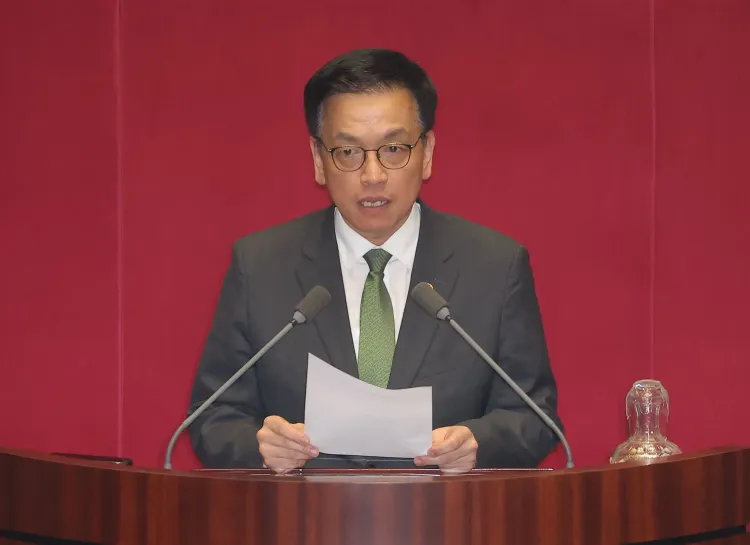
Synopsis
Key Takeaways
- Choi Sang-mok's resignation reflects ongoing political instability.
- The National Assembly paused impeachment proceedings after his resignation.
- Choi faced accusations of delaying a key judicial appointment.
- South Korea's political landscape is in flux due to former President Yoon's actions.
- Economic challenges continue to loom over the government.
Seoul, May 1 (NationPress) Choi Sang-mok, the Finance Minister of South Korea, has stepped down as the National Assembly prepared to cast a vote on an impeachment motion against him.
In a statement released by the Finance Ministry, Choi expressed, "I sincerely apologize to the citizens for being unable to fulfill my responsibilities amidst serious internal and external economic challenges."
Acting President and Prime Minister Han Duck-soo, who is anticipated to contest in the forthcoming presidential elections in June, promptly accepted Choi's resignation.
Following Choi's departure, the National Assembly suspended its deliberations on the impeachment motion, as reported by the Yonhap news agency.
South Korea has experienced a series of temporary leadership shifts in recent months, exacerbated by former President Yoon Suk Yeol's declaration of martial law in December and his subsequent ouster on April 4.
Choi initially assumed the interim presidential role on December 27, after Han was impeached by the Democratic Party (DP)-dominated National Assembly.
The latest impeachment motion, spearheaded by the DP, accused Choi of postponing the appointment of the ninth justice to the Constitutional Court, among other charges.
Choi was set to again take on the interim leadership role at midnight Thursday following Han's resignation.
Earlier that day, South Korean prosecutors announced that they had indicted former President Yoon Suk Yeol for abuse of power regarding his unsuccessful attempt at martial law, marking the latest in a series of indictments against the ousted leader currently embroiled in an insurrection trial.
The prosecution's special team investigating the matter stated that Yoon was indicted without physical detention for allegedly misusing his authority and hindering rights as he ordered military and police forces to obstruct the National Assembly on December 3rd last year due to his failed martial law directive.
This new indictment follows approximately three months after Yoon was first charged on January 26 for leading an insurrection—an offense not shielded by the constitutional immunity granted to sitting Presidents.
At that time, Yoon made history as the first sitting President in South Korea to be indicted while in detention.
Initially, prosecutors had avoided including this charge due to his presidential immunity, but opted to indict him for abuse of power after Yoon was removed from office by the Constitutional Court earlier last month.

